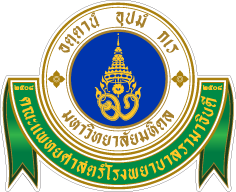
| Project Name | Multi-center Tumor Biobank |
| Faculty/Department | Cancer Center, Faculty of Medicine Ramathibodi Hospital |
| Background and Significance | In-depth biomolecular research in the treatment of cancer requires the use of biopsy samples from a patient, in addition to blood, DNA, RNA genetic material, proteins, and tissue for developing primary cell and tumor organoid cultures. Such cultures are important towards the treatment for cancer patients. Observing through histopathology, the cultured genetic material from the culture is similar to the cancer that is to be treated in the patient. Thus, the culture allows the research and experimentation, opening more possibilities of cancer treatment and therapy, and opens up new models for future methods for cancer treatment. |
| Scope and Area of Study | Thailand |
| Purpose | 1. To encourage collaboration amongst faculty members in various fields related to cancer treatment, which includes medical professors, researchers, and biomedical scientists in the Phyathai district hospitals. 2. To collect biopsy samples from cancer patients in a systematic, correct, and efficient way. In addition to cell cultures originating from cancer cells obtained from the patient's biopsy (organoids) to be used as a model for each cancer patient for study. 3. To support in-depth research and study in biomolecular cancer, and to promote the development of precision cancer treatment and diagnosis in Thailand . 4. To support Thai industries in the creation and innovation of biomarker and drug discovery for the treatment of cancer. |
| Sponsors | - |
| Related Departments | National Cancer Institute; Neurology Institute; Siriraj Hospital; Gynecological Tumor Bank, Yonsei University College of Medicine, Korea |
| Related Stakeholders | National Cancer Institute; Neurology Institute; Siriraj Hospital; Gynecological Tumor Bank, Yonsei University College of Medicine, Korea |
| Level of Cooperation | Nationwide |
| Project Results | 1. Building a comprehensive Tumor Biobank with complete, systematic, and efficient storage of biopsy samples, and cancer cell organoid models of cancer patients. 2. Conducting in-depth biomolecular research in combination with clinical data at a high level, with findings that can be published in internationally-respected journals. 3. Creating an inter-institution collaboration network between clinical faculty members in various fields involved in the treatment of cancer. 4. An ability to develop methods of culturing cancer cells as primary cell culture and tumor organoids from fresh tissue biopsies from patients left after cancer diagnosis to be used as a disease model in cancer research studies, and to develop precise medical treatment in Thai patients in a sustained manner. |
| Related Links | https://www.rama.mahidol.ac.th/th/knowledge_awareness_health/25dec2019-1606 |
| https://www.facebook.com/rama.rccc/posts/1532493103552470/ | |
| Related Sustainable Development Goals (SDGs) | - |



